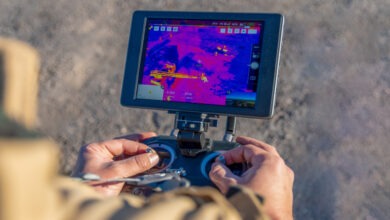
Keep Teenagers Safe On Technology
Teenagers are all about technology, so much so that it is a staple part of the collective teen mindset and personality. Not to stereotype too much, but there is a lot of truth in that statement. Teenagers live and breathe the stuff, but technology isn’t always safe, especially with the ever-developing online world. Therefore, a parent’s or guardian’s role is to ensure their safety and education around these platforms. How do you do this in a non-condescending and informative way? It’s not easy, but it is possible. Read on to find out more.
Teenagers and Popular Technology Gadgets
When discussing electronics, a few essential devices become part of a teen’s possessions. Mobile phones, tablets, headphones, computers and laptops, and gaming devices are all popular Electronic Gadgets for Teens, as you can see through browsing this list. With so many options – where do you even start when it comes to implementing safety procedures?
Protect their Personal Lives
Above all, stressing the importance of protecting personal information is essential. There are many ways that this can be accessed online and especially when throwing social media into the mix. Teens are vulnerable and easy targets for cybercriminals and worse. Therefore, making profiles private and remaining present are excellent protection methods. Educating young people about e-safety is usually a part of the curriculum, but it can also be taught at home. There is never a wrong time to stress these messages; in fact, it should be a consistent topic revisited from time to time. Technology devices are no different, just like stranger danger and keeping safe in public.
Stay an Active Participant
If your kid is on social media, get on the same platform. Befriend them regardless of embarrassment or reluctance and embrace the chaos right by their side. There are many benefits to remaining active in your teen’s device usage, from controlling usage times to monitoring online activity. It might not always be welcome, but it will always be necessary.
Nurture Communication
Without efficient, communicative channels, everything falls flat. It’s not always the easiest of tasks to talk to a teenager, but a lot is gained from trying. Parenting has changed, and so have children. The focus on gentle parenting and nurturing at the forefront of actions has led to a much less disciplinary focussed trajectory. This is healthy and hopefully makes it easier to keep talking to one another.
Be upfront about expectations and technology boundaries and follow through on respecting and observing them. Shying away from taboo topics only exposes them to more risk and removes fundamental tools for dealing with incidents. Talk about what they are doing online, and gently push even when resistance happens.
Technology Control by Parents
There are so many apps that can help an adult look after their child’s best interests. These monitor online usage, screen time, app access, and more. Though it may not be appropriate to respect the boundaries of an older teen, these kinds of parental controls are very useful for building trust in the beginning. When teens first let loose online, they are bound to push boundaries and explore everything.
Given the amount of inappropriate content and online predators, it’s essential to have the upper hand and explore everything related to technology as a collective unit rather than allow complete autonomy at first. This fosters an accumulative process in which independence is earned and trust is built instead of exposing the teen to unnecessary harm.
Screen Time Guidance
Screen time, or too much of it, can be harmful for many reasons. Staring at a screen too long can cause a subconscious addiction to social media, gaming, and mindless scrolling. It can also cause headaches, eye strain, and issues regarding sleep. The best way around this is to set technology time limits and help your teenager to recognize when enough is enough, and it’s time to put down the phone (or the tablet). It can also enable them to stay engaged with more important activities such as family socialization and homework or recreational activities and clubs.
Technology guidance can be especially important for neurodiverse teens, where routines and predictability support confidence online. For families engaged in autism therapy, consistent device rules, clear explanations, and visual schedules can reduce anxiety around screen use. Many apps offer customizable timers and content filters that align with therapeutic goals, reinforcing self-regulation skills practiced offline. Working with caregivers and therapists ensures technology becomes a supportive tool rather than a source of overwhelm or isolation, while promoting healthy communication and shared responsibility.
Technology is a learning curve, and teens will always explore it. Devices have become so integral in daily life that denying them is just denying the inevitable. Why fight the tide when you could ride the wave and make the experience safe and nurturing?






